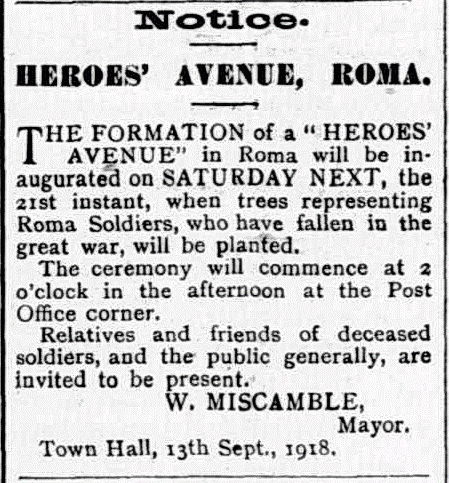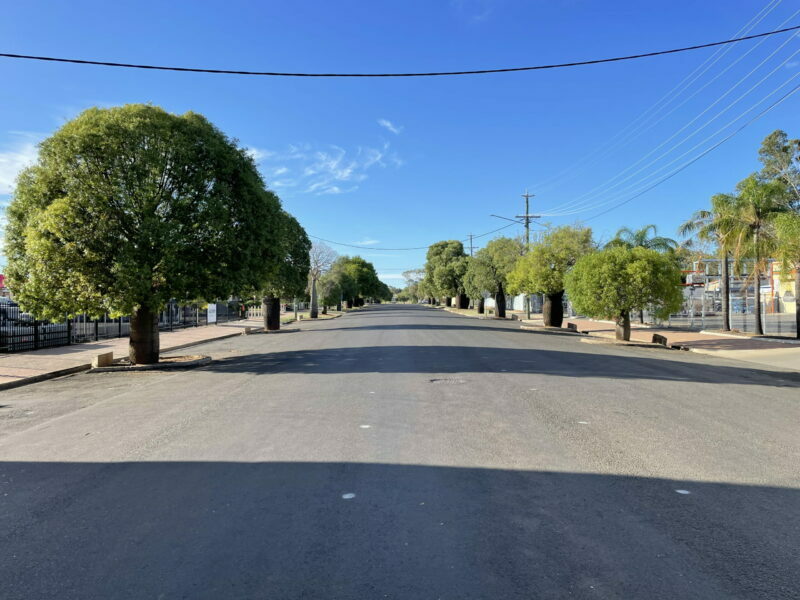Without a genuine love for our forbears, how can we truly love - or even live - our lives today? I asked that question about a year ago, and that question has stayed with me. And it’s what prompted this reflection.
We must return to honouring everything we have earned and learned and teaching our young to learn from the past in order to build a future worth living in.
I began writing this to honour our war dead. I thought I was writing about cemeteries. But somewhere along the way, I realised I wasn’t writing about death at all...I was writing about neglect. Not of the past, but of the present. Not of sacrifice, but of silence.
Because in Australia today, it seems death is the only guarantee of honour. A soldier can serve, suffer, and survive, and be forgotten. A citizen can contribute a lifetime of work, and be priced out of their own home. A community can build and endure, and be buried under red tape.
But die in uniform? We’ll build a monument. We’ll send flowers. We’ll clean the stone every year without fail.
So I ask you: When did honour become posthumous? When did life become less worthy than death? And is the True Blue Australia we once knew - quietly proud, fiercely fair - already lying in a forgotten grave?
The Beauty of Remembrance
I recently watched a documentary on the Kokoda Campaign and was deeply moved by the reverence shown to the fallen. The cemeteries were immaculate. Quiet. Sacred. The Office of Australian War Graves (OAWG), in partnership with its British and American counterparts, has done exceptional work preserving the dignity of those who died far from home.
In places like Villers-Bretonneux and in Papua New Guinea, the grass is trimmed, the names engraved, the flowers fresh. Even in a world of increasing political division, we still manage to get this right. And we should.

Closer to home, places like Roma’s Heroes Avenue .... with its avenue of 93 bottle trees, each commemorating a lost soldier from WWI .... are living memorials that stir the heart. I have walked that avenue and it still stays in my mind as one of the most impactive experiences I have had. Each tree, a life. If you have not been there, go.


As a child, I attended a school in rural New Zealand, with its own memorial grove. We kept the plaques clean. We knew their names. It meant something.
But something has changed.
What We No Longer Tend
While our overseas war cemeteries remain pristine, many of our public cemeteries are in disrepair. The Melbourne General Cemetery... resting place of governors, artists, and Indigenous leaders... is cracked, overgrown, and forgotten in places. Graves fall apart while departments argue about who holds the 'right of interment.'
Meanwhile, volunteers from the Australian Remembrance Army quietly scrub moss from headstones and try to patch the gaps where the state has let memory rot. They operate on shoestrings, burdened by red tape.
It costs them about $20 to restore a headstone. It costs the government nothing to say "no."
The Quiet Disrespect
And if we look up from the graves, what do we see? A defence force asked to do more with less. Veterans navigating paperwork more complex than any battlefield. Soldiers returned from service only to face homelessness, broken promises, and silence.

We hear talk of loyalty to the ANZAC spirit. But when it comes time to fund it? Suddenly it’s all too hard.
And now, we’re at odds with President Trump for refusing to raise our defence budget to 5% of GDP. But why should America defend us, if our own government won’t? Why should we expect others to value what we barely protect?
When Death Becomes Easier Than Duty
Maybe the truth is this: we honour the dead because they no longer ask anything of us. The living do. And that makes them inconvenient.
The fallen ask for honour. The living ask for housing, healthcare, recognition. AND honour.
The dead soldier is easy to romanticise. The living one might need psychological care, might struggle with the system, might even question the very institutions that sent them away.
So we give statues. But not support.
We fund ceremonies. But not soldiers.
We polish gravestones. But let real lives crumble. And for some reason our governments seem to applaud this disrespect where so few have ever served in a combat role.

A Dying Ideal
And it’s not just about defence. It’s about who we are.
The "True Blue" Australian - the fair-go battler, the quiet helper, the one who shows up without fuss...is fading.
Not dead yet. But dying.
Dying under the weight of unaffordable housing, government overreach, and public apathy. Dying in classrooms where history is rewritten instead of taught. Dying on farms handed down through generations but priced out by policy. Dying in suburbs where respect, manners, and shared values are now considered old-fashioned.
We’re still building memorials. But we’re burying the values they were built to honour.
The Call We Must Hear
Every headstone, every tree, every plaque asks the same question:
What will you do with the peace they bought for you? Paid for? With blood. With their lives?
If we no longer honour the living, we do not deserve the dead. If we cannot care for a veteran while he walks among us, our tribute at his grave is hypocrisy.
We must restore more than stone. We must restore meaning. Resolve. Memory. And responsibility.
If we do not? Perhaps we as a Nation are our in our death bed and no one will be left to mourn us. And maybe we will deserve to die in a lonely grave because we were too cowardly to fight?




















































